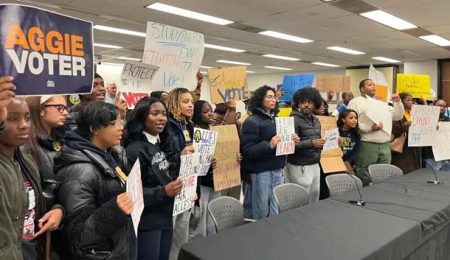Voters to Decide Jury Trial Provisions via 2014 Ballot
 by Nelda Holder
by Nelda Holder
A rather obscure item is likely to confound many voters when they find it on North Carolina’s 2014 general election ballot.
It is a proposed amendment to the NC constitution, little discussed publicly but passed almost unanimously by the NC General Assembly in 2013.
If approved by voters, the amendment will end North Carolina’s status as the only state in the union that does not allow criminal defendants an option of waiving trial by jury. Simply put, the amendment would allow a defendant pleading not guilty in a criminal case (other than death penalty cases) the right to have the case heard by a judge alone—if the defendant requests a jury waiver and the judge agrees. Such a trial is known as a “bench trial.”
A comparison to other states indicates that “two-thirds of the jurisdictions that allow bench trials in felony cases (36 out of 54) require consent of the prosecutor, either alone or in conjunction with the consent of the court,” according to the School of Government report.
As candidates for district attorney—the top prosecutorial office in Buncombe County—Todd Williams and Ben Scales were contacted by phone for their perspective on the constitutional amendment issue.
“I think it’s an interesting proposal,” said Williams, the Democratic nominee for the DA post. Defendants in misdemeanor cases now have the right to waive jury trial, he observed. “I think all this does is create another layer of election on the part of a North Carolina defendant, and takes nothing away from defendants’ rights.”
Williams also noted the amendment could perhaps “increase the distribution of cases,” noting that “so much time is wasted selecting a jury.” But he added that 75 percent of waiver-eligible cases still go to jury.
The proposed change for North Carolina does not require that the prosecutor agree with a waiver request. Not requiring the prosecutor to sign off on the waiver “makes the amendment very palatable,” Williams observed. By requiring the consent of the judge, he said, “the defendant can say I want to try this thing without a jury, (and) the judge says yea or nay.”
Scales, an unaffiliated candidate for the DA position, did voice some concern over a potential downside for defendants. “If they feel they are being coerced into waiving their rights, that might be unfair,” he observed.
“On the other hand, for the DA, it may be far more efficient … and a judge can allow certain evidence in that the same judge may try to keep away from a jury,” Scales explained. “From a court efficiency standpoint, there’s definitely a plus.”
“I guess it benefits the defendant,” said Scales, adding, “I’m sure the public is totally lost on this.”
Voters get the final say on changing the constitution, and are now being asked to vote “For” or “Against” the amendment, which is presented on the ballot this way:
Constitutional amendment providing that a person accused of any criminal offense for which the State is not seeking a sentence of death in superior court may, in writing or on the record in court and with the consent of the trial judge, waive the person’s right to a trial by jury.
To explore the research done by the School of Government, go to
http://sogpubs.unc.edu/electronicversions/pdfs/nonjuryfelonytrials.pdf
To review the legislative history of the amendment, go to www.ncleg.net.







